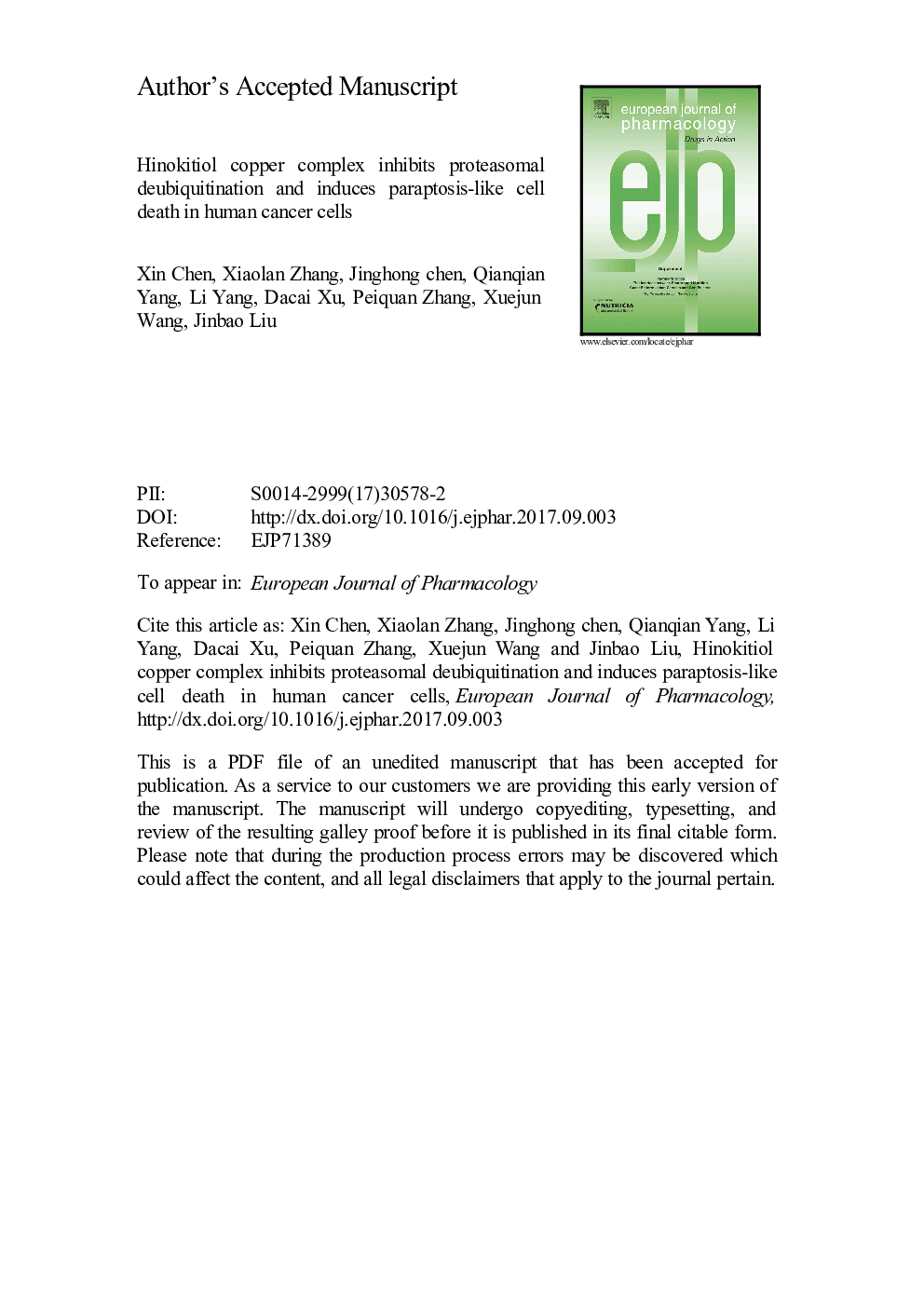| Article ID | Journal | Published Year | Pages | File Type |
|---|---|---|---|---|
| 8530044 | European Journal of Pharmacology | 2017 | 33 Pages |
Abstract
The ubiquitin-proteasome system (UPS) plays a central role in the regulation of proteins that control cell growth and apoptosis and has therefore become an important target for anticancer therapy. Several constitutive subunits of the 19S proteasome display deubiquitinase (DUB) activity, suggesting that ubiquitin modification of proteins is dynamically regulated. Our study and others have shown that metal complexes, such as copper complexes, can induce cancer cell apoptosis through inhibiting 19S proteasome-associated DUBs and/or 20S proteasome activity. In this study, we found that (1) Hinokitiol copper complex (HK-Cu) induces striking accumulation of ubiquitinated proteins in A549 and K562 cells (2) HK-Cu potently inhibits the activity of the 19S proteasomal DUBs much more effectively than it does to the chymotrypsin-like activity of the 20S proteasome (3) HK-Cu effectively induces caspase-independent and paraptosis-like cell death in A549 and K562 cells, and (4) HK-Cu-induced cell death depends on ATF4-assosiated ER stress but is apparently not related to ROS generation. Altogether, these data indicate that HK-Cu can inhibit the activity of the 19S proteasomal DUBs and induce paraptosis-like cell death, representing a new drug candidate for cancer treatment.
Related Topics
Life Sciences
Neuroscience
Cellular and Molecular Neuroscience
Authors
Xin Chen, Xiaolan Zhang, Jinghong Chen, Qianqian Yang, Li Yang, Dacai Xu, Peiquan Zhang, Xuejun Wang, Jinbao Liu,
